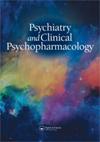中老年糖尿病患者的心理适应问题及护理策略
摘要
背景:探讨以心理适应为导向的综合护理干预方案对中老年糖尿病患者血糖控制、心理状态和自我管理能力的影响,分析患者心理状态、血糖控制和自我管理能力之间的相关性。方法:选取104例中老年糖尿病患者,采用随机数字表法随机分为对照组(n=50)和干预组(n=54)。对照组患者给予常规护理干预,包括基础健康教育、血糖监测指导、规范饮食计划、运动指导等。干预组附加以心理适应为导向的综合护理方案,包括个体化疾病管理、多层次心理社会支持、家庭支持系统建设(患者-家庭-医护人员-社区的四级模式)、分阶段自我管理能力培训。干预期为6个月,分别在基线、干预后3个月和干预后6个月进行评估。采用抑郁自评量表(SDS)和焦虑自评量表(SAS)评估心理状态,采用糖尿病自我护理活动总结量表(SDSCA)评估自我管理能力。监测空腹血糖(FPG)和糖化血红蛋白(HbA1c)。采用8项Morisky药物依从性量表(MMAS-8)评估药物依从性,并记录随访率。使用Pearson相关分析来评估变量之间的关系。结果:干预6个月后,干预组SDS评分(41.25±8.43比51.86±9.12,P < 0.001)和SAS评分(40.62±7.83比50.84±7.98,P < 0.001)均显著低于对照组。干预组SDSCA评分高于对照组(71.85±6.42 vs 61.85±7.26,P < 0.001)。干预组HbA1c水平(7.21±0.78% vs 7.73±0.84%,P < 0.001)和FPG水平(7.13±0.68 vs 7.82±0.76 mmol/L, P < 0.001)显著降低。干预组药物依从性(MMAS-8≥6分:88.89% vs 72.00%, P= 0.008)和随访完成率(92.59% vs 78.00%, P= 0.018)优于对照组。相关分析显示,患者心理状态与血糖控制(r=0.465 ~ 0.486, P < 0.05)和自我管理能力(r= -0.512 ~ -0.534, P < 0.01)均有显著相关性。结论:以心理适应为导向的综合护理干预方案能有效改善中老年糖尿病患者的心理状态,增强自我管理能力,优化血糖控制。患者心理状态与血糖控制、自我管理能力密切相关,提示在中老年糖尿病患者的护理管理中应重视心理干预。Background: To investigate the effects of a comprehensive nursing intervention program oriented toward psychological adaptation on blood glucose control, psychological status, and self-management capabilities in middle-aged and elderly diabetic patients and to analyze the correlations between patients' psychological status, glycemic control, and self-management ability. Methods: A total of 104 middle-aged and elderly diabetic patients were selected and randomly divided into a control group (n=50) and an intervention group (n=54) using a random number table. The control group received routine nursing intervention, including basic health education, blood glucose monitoring guidance, standardized dietary planning, and exercise instruction. The intervention group received an additional psychological adaptation-oriented comprehensive nursing program, comprising individualized disease management, multi-level psychosocial support, family support system construction (a quaternary model integrating patient-family-medical staff-community), and staged self-management capability training. The intervention period was 6 months, with assessments conducted at baseline, 3 months, and 6 months post intervention. The Self-Rating Depression Scale (SDS) and Self-Rating Anxiety Scale (SAS) were used to evaluate psychological status, while the Summary of Diabetes Self-Care Activities (SDSCA) assessed self-management ability. Fasting plasma glucose (FPG) and glycated hemoglobin (HbA1c) were monitored. Medication adherence was evaluated using the 8-item Morisky Medication Adherence Scale (MMAS-8), and follow-up rates were recorded. Pearson correlation analysis was used to assess relationships between variables. Results: After 6 months of intervention, the intervention group showed significantly lower SDS scores (41.25 ± 8.43 vs 51.86 ± 9.12, P < .001) and SAS scores (40.62 ± 7.83 vs 50.84 ± 7.98, P < .001) compared to the control group. The intervention group demonstrated higher SDSCA scores (71.85 ± 6.42 vs 61.85 ± 7.26, P < .001) than the control group. HbA1c levels (7.21 ± 0.78% vs 7.73 ± 0.84%, P < .001) and FPG (7.13 ± 0.68 vs 7.82 ± 0.76 mmol/L, P < .001) were significantly lower in the intervention group. Medication adherence (MMAS-8 ≥ 6 points: 88.89% vs 72.00%, P=.008) and follow-up completion rates (92.59% vs 78.00%, P=.018) were superior in the intervention group. Correlation analysis revealed significant associations between patients' psychological status and both glycemic control (r=0.465- 0.486, P < .05) and self-management ability (r =-0.512 to -0.534, P < .01). Conclusion: A psychological adaptation-oriented comprehensive nursing intervention program effectively improves psychological status, enhances self-management ability, and optimizes glycemic control in middle-aged and elderly diabetic patients. The close correlation between patients' psychological status, glycemic control, and self-management ability suggests that psychological intervention should be emphasized in the nursing management of middle-aged and elderly diabetic patients.

 求助内容:
求助内容: 应助结果提醒方式:
应助结果提醒方式:


